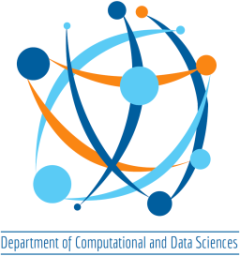DEPARTMENT OF COMPUTATIONAL AND DATA SCIENCES
Ph.D. Thesis Colloquium
Speaker : Mr. Yuvaraj I
S.R. Number : 06-18-01-10-12-13-1-10377
Title : “Structural and functional studies on the hypothetical protein TTHA1873 from Thermus thermophilus”
Research Supervisor : Prof. K. Sekar
Date & Time : July 16, 2024 (Tuesday), 11:00 AM
Venue : # 102 CDS Seminar Hall
ABSTRACT
This thesis reports a detailed study on the structural and functional characterization of the hypothetical protein (TTHA1873) from Thermus thermophilus. In this study, we characterized both the structure and function of TTHA1873. To elucidate the novel structure of this uncharacterized protein, the study employed a heavy atom derivative compound K 2 [HgI 4 ] to obtain an anomalous signal using home source X-ray. The structural information obtained was then used to infer the function of this protein. Biochemical experiments demonstrated that TTHA1873 acts as a nuclease, indiscriminately cutting methylated and non-methylated DNA in divalent metal ions and relaxing plasmid DNA in the presence of ATP. Its activity is inhibited by EDTA. Structural analysis identified functionally important residues, and molecular dynamics simulations were conducted to investigate the effects of mutating two critical residues on DNA binding.
The study explored the effects of high temperatures on this protein through molecular dynamics, identifying temperature-sensitive regions and providing insights into thermal denaturation. The use of heavy atom compound K 2 [HgI 4 ] to obtain phases has been previously reported in the literature. Still, the protocols used to solve the three-dimensional structure of this protein may be particularly useful in challenging cases where molecular replacement is ineffective or when no similar structures are available in the Protein Data Bank (PDB), without relying on a synchrotron source.
ALL ARE WELCOME



